第4報告書の翻訳について

注 記
This was translated by a translation company. Unfortunately, due to time constraints during litigation, there were some errors and unnatural usages of Japanese in the translation that went unchecked. These have been highlighted here.
特定的誤訳
Original English
“Having problems with withdrawal”
“Control”
Original Japanese Translation
“離脱に悩まされている”
“コントール”
Meaning of Original Japanese Translation
“Having problems with withdrawal”
“Contol”
New Translation
制御
Explanation
The original English indicates “control” meaning that the doctor was having difficulty trying to control the withdrawal, whereas, the translation says "Contol" which is a brand name for the benzodiazepine drug Chlordiazepoxide.
ページトップに戻る
Original English
“As outlined in Report 2, of particular note was the fact that he was still able to work in Japan, albeit on light duties, before the treatment began, but he struggled to complete his contract during the course of the treatment (subsequently cut short), after which he ended up in a state where he was unable to work at all again for over one year”.
Original Japanese Translation
“第二報告書で述べた内容で特に注目すべきことは、治療開始前に、軽い仕事ではあるが、彼はまだ日本で働くことができていた事実である。しかし、治療途中で契約通りの仕事をこなすことが難しくなり(続いて勤務時間を減らすに至った)、その後、1年以上も全く再度職につくことができない状態になってしまった。”
Meaning of Original Japanese Translation
“As outlined in Report 2, of particular note was the fact that he was still able to work in Japan, albeit on light duties, before the treatment began, but he struggled to complete his contract during the course of the treatment (subsequently leading to the reduction of work hours), after which he ended up in a state where he was unable to work at all again for over one year”.
New Translation
第二報告書で述べた内容で特に注目すべきことは、治療開始前に、職責の軽い仕事とはいえ、彼はまだ日本でなお勤務し続けることができていた事実であるが、治療途中で契約通りの仕事をこなすことが難しくなり(その結果、契約を途中で解約することに至った)、その後、1年以上の間、全く就労することができない状態になってしまった。
Explanation
The original English indicates not being able to work to the end of the employment contract stating that it (the contract) was subsequently cut short of its completion date.
However, the translation company translated this as saying the work hours had been reduced.
ページトップに戻る
Original English
“Noted in the history that Wayne presented to our service was the list of additional symptoms that he developed following approximately 4 months of drug treatment”.
Original Japanese Translation
“ウェインが当科に提供した病歴の中で注目すべきことは、薬物治療開始後の約4~6カ月の時点で発現した更なる症状のリストであった。”
Meaning of Original Japanese Translation
“Noted in the history that Wayne presented to our service was the list of additional symptoms that he developed following approximately 4 ~ 6 months of drug treatment”.
New Translation
ウェインが当科に提供した病歴の中で注目すべきことは、薬物治療開始後の約4カ月の時点で発現した更なる症状のリストであった。
Explanation
Clearly a careless mistake: Stating 4 ~ 6 months instead of 4 months.
ページトップに戻る
Original English
“Below is a list of complaints taken from Wayne’s history under Dr. Whitwell that may be used to try and rule out certain symptoms associated with his Benzodiazepine dependence”
Original Japanese Translation
“下記は、テハール医師のもとでのウェインの病歴の訴えのリストであり、これは彼のベンゾジアゼピン依存症に伴う特定の症状を除外するために用いられる可能性があるものである。”
Meaning of Original Japanese Translation
“Below is a list of complaints taken from Wayne’s history under Dr. ter Haar that may be used to try and rule out certain symptoms associated with his Benzodiazepine dependence”
New Translation
下記は、ウィットウェル医師のもとでのウェインの病歴の訴えのリストであり、これは彼のベンゾジアゼピン依存症に伴う特定の症状を除外するために用いられる可能性があるものである。
Explanation
Clearly a careless mistake: Stating Dr. ter Haar instead of Dr. Whitwell.
ページトップに戻る
Original English
“Like his other dependence symptoms, the anxiety and depression type symptoms intensified again during the formal reduction process, and like his other dependence symptoms, the anxiety and depression type symptoms continued to improve following completion of the initial withdrawal phase of his formal withdrawal program – in the absence of Benzodiazepines, although, many symptoms did wax and wane for several months, which is consistent with a protracted withdrawal syndrome”.
Original Japanese Translation
“彼のその他の依存症状のように、不安症と抑うつ様の症状は標準的漸減療法中に再び激しくなり、また、彼のその他の依存症状のように、不安症と抑うつ様の症状は、彼の標準的漸減療法の初期離脱段階の終了後に改善し続けた-しかしベンゾジアゼピンが除外されると、多くの症状が数カ月に渡り一進一退した。これは持続性離脱症状と合致する。”
Meaning of Original Japanese Translation
“Like his other dependence symptoms, the anxiety and depression type symptoms intensified again during the formal reduction process, and like his other dependence symptoms, the anxiety and depression type symptoms continued to improve following completion of the initial withdrawal phase of his formal withdrawal program – but when the benzodiazepines were removed, many symptoms did wax and wane for several months. This is consistent with a protracted withdrawal syndrome”.
New Translation
彼のその他の依存症状のように、不安症と抑うつ様の症状は標準的漸減療法中に再び激しくなり、また、彼のその他の依存症状のように、不安症と抑うつ様の症状は、彼の標準的漸減療法の初期離脱段階の終了後に、ベンゾジアゼピン処方がない状態で、改善し続けた。しかし、多くの症状が数カ月に渡り一進一退し、これは遷延性離脱症状と
Explanation
The original English focuses on the fact that the “symptoms continued to improve in the absence of Benzodiazepines” which supports the fact the drugs were not beneficial at all.
The above passage consists of 2 sentences linked together using the connective “although”. The parts that says “symptoms continued to improve” and “in the absence of Benzodiazepines” form part of the same sentence.
However, the translation company combined “in the absence of Benzodiazepines” from sentence one with “many symptoms did wax and wane for several months” from sentence two which caused a shift in the intended focus of the passage.
It appears the translator failed to realize that “symptoms continued to improve” and “in the absence of Benzodiazepines” formed part of the same sentence. This should have been apparent by the connective “although” which serves as a clear divider indicating where each of the 2 sentences begin and end.
ページトップに戻る
Original English
“However, we can see from the notes on page 21 of the Mental Health & Addiction Services patient file that Wayne later complained of an increase in light sensitivity, colour flashes, exaggerated after images, flashes, staggered focus etc following 4~6 months of Benzodiazepine exposure. This worsening of visual symptoms is also suggestive of withdrawal”.
Original Japanese Translation
“しかし、精神保健及び薬物依存療法科の患者のカルテ情報の21頁の記録に、ウェインはベンゾジアゼピン服用開始後4~6ヶ月の時点で、光に対する過敏症、色つきの閃光、過度の残像、閃光、フォーカスが定まらないこと等の悪化を訴えたとある。この視覚障害の悪化もまた離脱を支持するものである。”
Meaning of Original Japanese Translation
“However, we can see from the notes on page 21 of the Mental Health & Addiction Services patient file that Wayne later complained of a worsening in such things as light sensitivity, colour flashes, exaggerated after images, flashes, wobbling vision following 4~6 months of Benzodiazepine exposure. This worsening of visual symptoms is also suggestive of withdrawal”.
New Translation
しかし、精神保健・中毒治療科の患者カルテ情報の21頁の記録に、ウェインはベンゾジアゼピン服用開始後4~6ヶ月の時点で、光に対する過敏症の増加、色つきの閃光、過度の残像、閃光、視覚がコマ送りに見えること等を訴えたとある。この視覚障害の悪化もまた離脱を支持するものである。
Explanation
The original English indicates that the “increase” applied only to light sensitivity.
However, the translator mistakenly applied “increase” to all the items in the list suggesting that they all existed before the drug treatment which was not the case.
The mistake here is similar to those shown in article 2.2.7 and article 3.3.17 of the translation errors in Report Three. These are caused by the translator not understanding which items in a given list apply to either (A) a verb at the start of the list or (B) a conclusion at the end of the list (See article 2.2.7 and article 3.3.17 for examples).
If the verb “increase” did indeed apply to all the items in the above list, this would have been qualified using words like “an increase in such things as” or “an increase in the following” etc.
Also, the original English intends to indicate that the vision appeared staggered like seeing the environment in a frame by frame motion (as if the brain wasn’t processing the images as quickly as what the eyes were taking them in), whereas the translation indicates that the vision appeared to wobble or flicker back and forth.
ページトップに戻る
一般的誤訳
注 記
The following errors appeared generally throughout the report and so have been highlighted here without any references to specific articles.
Original English
“Acute Vestibulopathy”
Original Japanese Translation
“急性眩暈症”
Meaning of Original Japanese Translation
“Acute Vertigo”
New Translation
急性前提障害
Explanation
It appears the original translation can be used for “vestibulopathy” as well but refers more commonly to “vertigo” in general which leaves room for misinterpretation.
ページトップに戻る
Original English
“Protracted withdrawal Symptoms”
Original Japanese Translation
“持続性離脱症状”
Meaning of Original Japanese Translation
“Persisting withdrawal Symptoms”
New Translation
遷延性離脱症状
Explanation
It appears the meaning is much the same but has now been changed to a term more commonly used in cases of drug dependency.
ページトップに戻る
Original English
“Most likely”
Original Japanese Translation
“おそらく”
Meaning of Original Japanese Translation
“Perhaps”
New Translation
蓋然性は、極めて高い
Explanation
The original English indicates certainty of about 90% or more, whereas the translation indicates certainty of about only 40%. Needless to say, misinterpretations such as this would affect the tone of conviction presented in the reports.
ページトップに戻る
Original English
“We”
Original Japanese Translation
“当職”
Meaning of Original Japanese Translation
“Our service / organization”
New Translation
我々
Explanation
In some instances the original English used “We” as a generic term to refer to “all parties”, however, the original translation did not accommodate these subtleties and referred only to the people who represent the report in every instance.
ページトップに戻る
Original English
“Initially”
Original Japanese Translation
“初めて”
Meaning of Original Japanese Translation
“For the first time”
New Translation
当初では
Explanation
The original English indicates “the early stages” or “at the beginning” (e.g. of the treatment), whereas the translation indicates a first time occurrence.
ページトップに戻る

このサイトの主要言語は英語です。
その翻訳は私自身を含む複数の人によって手がけられました。
私の母国語は日本語ではありませんので何卒ご理解いただきたくお

このサイトの一部はまだ日本語に翻訳されていない部分があります

当サイトは、医原性ベンゾジアゼピン薬物依存症(中毒)の注意喚起、また、医療訴訟の問題について知っていただくために、個人的に作成したものです。
当サイトには報復的な目的は一切ありません。また、プライバシー保護のため、当サイトに掲載される公的資料からは、被告人またはその他関係者の名前は削除されています。
当サイトには私以外に関係する個人や団体は無く、また、特定の組織や社会運動を代表するものでも一切ありません。
当サイトは医療的あるいは法的な助言を目的としたものではありません(免責条項参照)。
国際麻薬統制委員会2010年報告書によると、日本におけるベンゾジアゼピン系“抗不安薬(anxiolytic)”の平均消費量は、欧州各国の多くよりも少ないものの、アジアの中ではイランに次いで最も多い(35頁、Figure 20参照)。

一方、日本のベンゾジアゼピン系“催眠鎮静薬(sedative-hypnotic)”の平均消費量は、ベルギーを除くと世界のどの国よりも多い(39頁、Figure 26参照)。
アシュトンマニュアル:世界的な専門家、ヘザー・アシュトン教授によって書かれた、ベンゾジアゼピン系薬剤と離脱法についての解説書。
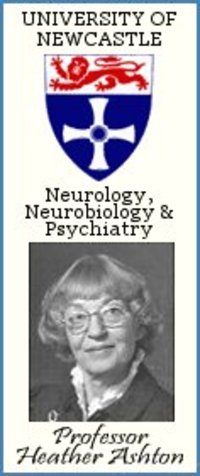
このマニュアル内で示された離脱スケジュールは単に“一般的な指針”を示すために作成されたものであることを、あなたの処方医に伝えることが大切です。離脱の経験は人それぞれで、同じものがない。離脱の経過は多くのファクター(要因)に影響されるからです。
臨床用量のベンゾでは中毒にならないと思っていませんか?
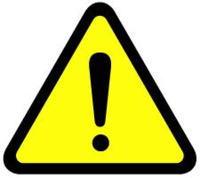
考え直しましょう!
“もしベンゾジアゼピンが定期的に2~4週間以上にわたり服用されるならば、耐性と依存が生じる可能性がある。最小投与量はなく、例えば耐性と依存は2.5mg~5mgのジアゼピンの定期的な服用後に見られたこともある。”
ヘザー・アシュトン教授(英国、ニューカッスル・アポン・タイン大学名誉教授、臨床精神薬理学)。
スティーヴィー・ニックス: “嘘をついて”(Little Lies)
医師: ベンゾジアゼピンを飲めば気分が落ち着くから、もうコカインに戻ることもないよ。

歌手のスティーヴィー・ニックスは自身のベンゾジアゼピン処方薬離脱経験を「“地獄”のようでコカインやヘロインからの離脱よりも質が悪かった」と表現しながら、クロノピン(リボトリール)の危険性を訴えています。
「クロノピンは私をゾンビにした」(スティーヴィー・ニックス, US Weekly, 2001)

You may be interested to see the notes on corrections of Japanese translation errors, which were contained in the dependency medical report translations, together with explanations of the nature of these errors, and consider their potential implications on the case.
This is very interesting!
I went from being barely able to walk when I was on benzodiazepines to being able to squat 180kgs following abstinence and rehabilitation.

What are benzos for again?

The only time I’ve ever needed to visit a psychologist in my life was AFTER (wrongfully) being prescribed benzodiazepines…

It seems the truths about the potential dangers of benzodiazepines are slowly coming out but with so many cases of prescription dependency worldwide there is clearly a long way to go.
Also, in my experience it appears as if dependency to prescription drugs leans toward a subject of taboo – almost as if society is succumbing to it.
However, is keeping these problems locked up in the closet going to help anyone or change anything?
At first it was difficult sharing my case and story online because it necessitated disclosing personal information, however, I felt the need to come out and help raise awareness outweighed this…
「もし何かの薬を飲み続け、それが長い長い災難をもたらし、あなたからアイデンティティをまさに奪い去ろうとしているのなら、その薬はベンゾジアゼピンに違いない。」

ジョン・マースデン医師
ロンドン大学精神医学研究所
2007年11月1日
「我々の社会において、ベンゾは他の何よりも、苦痛を増し、より不幸にし、より多くの損害をもたらす。」

フィリップ・ウーラス下院議員
英国下院副議長
オールダムクロニクルOldham Chronicle (2004年2月12日)
「ベンゾジアゼピン系薬剤はおそらく、これまでで最も中毒性の高い薬物であろう。これらの薬を大量に処方してきた途方もなく大勢の熱狂的な医師達が、世界最大の薬物中毒問題を引き起こしてきたのだ。」

薬という神話 (1992)
「薬があれば、製薬会社はそれを使える病気を見つける。」

ジェレミー・ローランス (ジャーナリスト)
インディペンデント紙 (2002年4月17日)
「製薬会社に対して、彼らの製造する薬について公正な評価を期待することは、ビール会社にアルコール依存に関する教えを期待するのと同じようなものである。」

マーシャ・エンジェル医師
医学専門誌"New England Journal of Medicine"元編集長
「ベンゾジアゼピンから離脱させることは、ヘロインから離脱させるよりも困難である。」

マルコム・レイダー教授
ロンドン大学精神医学研究所
BBC Radio 4, Face The Facts
1999年3月16日
「長期服用者のうち15%の人たちに、離脱症状が数ヶ月あるいは数年持続することがある。中には、慢性使用の結果、長期に及ぶ障害が引き起こされる場合もあり、これは永続的な障害である可能性がある。」

ヘザー・アシュトン教授
医学博士、名誉教授
Good Housekeeping (2003年)
Both the High Court and Supreme Court Verdicts dismissed my case completely (100%), despite the comprehensive medical reports, expert opinions, and credible evidence...

Who's protecting society (the tax payers) whose money they receive as salary to protect the public?
私はもともと、ベンゾジアゼピン処方による被害にあい、その上に東日本大震災にもあいました。震災にあった時に心配になったことは、トラウマに悩まされている被災地の多くの人たちが、ベンゾジアゼピンの処方をたくさん受けているのではないかということでした(今も心配しています)。
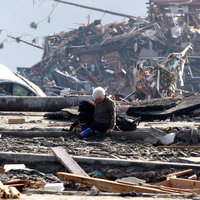
大震災の最中に、私はちょうど最高裁への上告理由書を書いていたところでした。せっかくでしたので、その機会を借りて、警鐘を鳴らそうと思い、下記の文を補記しました…
What worked well?
What didn't work so well?

For the interest of the reader, in this site I have given feedback on what worked well in my case and what could have been done better.
A lot of people were surprised that I did not bear a grudge against the prescribing doctor, but I felt anyone can make mistakes.

What got me though, was the fact he showed no remorse even after the evidence had been made clear.
The DSM-IV-TR diagnostic criteria for dependency proved to be a valuable tool in my case because it helped guide the arguments into place.

Initially the defense appeared to be dodging issues which resulted in both parties arguing on different planes.
However, once Addictive Medicine Specialist, Dr. Graeme Judson had introduced the application of the DSM-IV-TR criteria into the equation, it helped to define the arguments for litigation effectively preventing the defense from dodging issues.
(注:DSMをめぐっては議論があり、医師は彼らにとって有利なようにこれらの診断基準を使うこともあり得ます。だから、私の裁判でも弁護士と十分に協議しました。)
Seems people are all saying the same things over and over…

- I was like a zombie
- It felt like I was in hell
- It was much harder to come off benzodiazepines than anything else I'd ever had before
- It took a chunk of my life away
- It has destroyed my life
- The doctor never told me they were addictive / The doctor told me they weren’t addictive
- When I complained my condition was worsening the doctor prescribed me more...

Each one of us has a different experience of withdrawal.
The duration and degree of intensity can vary depending on the individual and there are many reasons for this.
The informed consent argument formed an integral part of the case because it was needed to prove negligence.

Without negligence there would have been no accountability, and therefore, no case from the outset.
In section 4 of his fourth report, Addictive Medicine Specialist, Dr. Graeme Judson explained the principles of prescribing and informed consent in relation to my case and sample applied.
The monitoring argument also formed an integral part of the case because it too was needed to prove negligence.
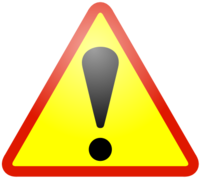
As above, without negligence there would have been no accountability, and therefore, no case from the outset.
As with informed consent, in section 4 of his fourth report, Addictive Medicine Specialist, Dr. Graeme Judson explained the principles of prescribing and monitoring in relation to my case and sample applied.

このセクションでは、私が闘った日本の裁判についてお話します。特にそこで現れた、明らかに不当な処置と思われる事例のかずかずを紹介します。これらの事例をわかりやすくお伝えするために、「東京高等裁判所の判決」と「中毒治療科の報告書」への参照箇所(リンク)がいくつか出てくるので是非ご参考ください。また、「中毒治療科報告書」は、一貫して、法的証拠およびDSM-IV-TRの依存症診断基準に基づいて書かれていることにもご留意ください。

- 当方の重要証人である医長(診断医)は、裁判での証人尋問を2回拒まれています。1回目は東京地方裁判所で、2回目は東京高等裁判所においてです。
- 第1審決裁後の反証提出期限を過ぎてから、地方裁判所の裁判官は、被告側の有利になる問題を提出し、当方には反証提出の機会すら与えられなかった。
- 東京高等裁判所の裁判官は、中毒を引き起こすとみなされるベンゾジアゼピンの用量を決める際には、製薬会社が作成した添付文書に信用を置いて、提出された十二分なまでの証拠(疑う余地のない文献や専門家の意見など)を、あろうことか、無視した。
- 裁判では、被告医師が下した診断と、出された処方は整合性が取れないのだが、その矛盾は追及されることはなかった。
- 判決理由の記載の中身をみると、高等裁判所は、本件に適応されたDSM-IV-TR診断基準のうち、半分以上について検討していないことは明らかである。
- 訴訟中に裁判長の交代があった結果、本件について詳しい裁判長の代わりに、本訴訟の経過やベンゾジアゼピンについての基礎知識を全く持っていない新しい裁判長が途中で本訴訟を引き継ぐことになってしまった。
It is not uncommon for drugs in Japan to be prescribed in powder form

I was prescribed 5 different drugs, including 3 kinds of benzodiazepines mixed together in powder form (dispensed in sachets) and a tricyclic antidepressant, without being correctly informed about the drugs or the treatment.
When I returned to NZ, Addictive Medicine Specialist, Dr. Graeme Judson said “I can’t believe you made it through customs at the airport!”
Throughout this entire ordeal, I came to realize the importance of “Balance”.

As pressing as the court deadlines were and as demanding as the case was, without maintaining a balance in life including rest, recreation, work, socializing, diet, sleep etc. it would have been impossible to sustain.
However, it was always a razor edge fine line between making progress and maintaining health and balance.
Subsequently, it took a lot of skill and adapting.
Did You Know?
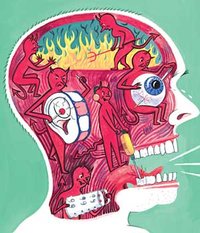
耐性は必ずしも全ての症状において生じるものではない。
たとえば、ある患者が睡眠作用に対する耐性は形成されるが、抗不安作用に対する耐性は形成されな い。あるいは、不安やストレスによるくつかの症状に対する耐性は形成されるが、その他の症状に対する耐性は形成されない。ベンゾジアゼピンの様々な作用に 対する耐性は、出現の早さも程度も様々です(アシュトンマニュアル参照)。

When do you suppose my condition was at its worst?
- When I was experiencing moderate levels of work related stress?
- When I was working a high pressure job and involved in a rigorous court battle in another country and language against a world famous doctor, the hospital, and the teams of lawyers and entire networks that no doubt sat behind them?
The answer is A.

Why?
Because at the time of situation (B) above, I wasn’t being mislead by a doctor feeding me a cocktail of highly addictive prescription drugs.
Instead I was employing the use of practical (non-drug) stress management techniques learnt in New Zealand before I returned to proceed with litigation in Japan.
Same principles applied to coping with the affects of the 3-11 disaster...

I was warned about experiencing an inevitable down upon conclusion of my court case; much the same as what Olympians experience at the end of the games. I thought I’d be fine because I had my job and my hobbies.
However, when the time came I found myself dealing with it alone, jobless, penniless, and at one point homeless following the 3/11 disaster.
This has been an incredible challenge in itself, but as stated above, I was able to see this through without the need for drugs from misleading doctors.
A doctor that took the time to listen…

Whilst residing in state housing in Nagano, as an evacuee from Fukushima, I consulted a local ENT about ear pain from overuse of earplugs.
As we got talking he learned of my situation with regards to being displaced by the 3/11 disaster and Fukushima nuclear accident.
As a result, he also learned that I was under some stress.
However, instead of labeling me with some fancy diagnostic term and prescribing me drugs, he sat down and we discussed possible solutions as to how to I might be able to relocate, get my job back, etc.
He did this after his surgery had closed over a cup of tea – what a great doctor and what a great guy!
Cause for Alarm!

Consider this extract from:
A Review of David Healy's “The Psycho-pharmacologists III” by Professor Heather Ashton
How is it that the pharmaceutical industry has come to dominate the field?
Healy points out that drug companies “are now not simply confined to finding drugs for diseases. They have the power to all but find diseases to suit the drugs they have”.
Pierre Simon (Sanofi Pharmaceuticals) remarks: “In the beginning the pharmaceutical industry was run by chemists.
This was not so bad... Now most of them are run by people with MBAs... people who could be the chief executive of Renault, Volvo or anything.
They don't know anything about drugs.” The problem comes when a chemist presents an interesting drug to the financial analyst, who asks: “What is the market?”
The chemist has to decide for what indication the drug will be developed. If the indication is not there, it must be created.
It was difficult to get any relief from the ongoing symptoms
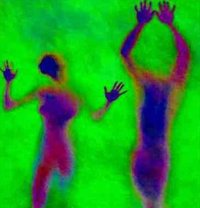
Unlike injuries where you may get some relief from adjusting your posture etc, with drug dependency in my case, the pain was both mental and physical and ran 24/7 regardless…

Ever wonder why the diazepam conversion rates differ from source to source?
中毒性薬剤専門医のジャドスン医師は次のように説明します。
「ジアゼパム換算量を計算するために用いられる換算率は情報源によって異なる傾向がある。これは“換算”用量に対する臨床反応の個人差がさまざまであるためで、あるベンゾジアゼピンからその他に換算する際、代替の薬剤に対する患者の反応の注意深いモニタリングが必要である。」
多くの人から、最高裁判所まで闘った理由やこのウェブサイトを作成するに至った動機について尋ねられます。
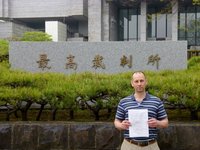
まず裁判については、私はただ単に「このような結果がもたらされる治療は有り得ない」と感じたのです。人が病院に行って、このように苦しむべきではありません。また、現在の医療界には、私だけでなく多くの人たちに影響を及ぼしている大きな問題が存在することを知りました。この問題について当局に注目してもらう必要があり、医師側も責任を問われる必要があると考え、裁判を闘ったのです。
このウェブサイトに関しては、処方薬中毒とはどのようなものかを知り、そして、この薬が社会全体に影響を及ぼしていることに気付いたことで、他の人が同じ目に遇い苦しむことのないよう何かをしなければと感じたのです。そこで、当サイトを立ち上げることにしました。
裁判という究極のストレスに悩まされるチャレンジにおいて、私はいつもラグビーNZ代表のオールブラックス、とりわけキャプテンのリッチー・マコウ(Richie McCaw)からインスピレーションを得て、それを活かしていました。

状況がどんなに厳しくなろうと、どんなに不当に扱われようと、彼らが不平を言うことは決してなく、ただただ前進していくのです。
素晴らしい!
There were many challenges in my case.

These included fighting a world famous doctor in another country and language, acting as go-between for a harsh natured Japanese speaking lawyer and a sensitive natured English speaking doctor, making my Supreme Court Appeal whilst evacuating from Fukushima etc during the 3/11 disaster etc…
In my case, “confusion” appeared to be the main tactic of choice employed by the defense.

Enter the term “Autonomic Nervous Disorder” (The Perfect Smokescreen).
(Partial Reference: benzo.org.uk)
Journalists have regularly exposed the Benzodiazepine Scandal with stories of celebrity deaths attributed to benzo use as well as the blighted lives of ordinary people.
Benzodiazepines were, by all accounts, implicated in the deaths of:
- Elvis Presley
- Paula Yates
- Michael Jackson
- Heath Ledger
- Brittany Murphy
- Amy Winehouse
- DJ AM (a.k.a. Adam Goldstein)
- Anna Nicole Smith
- Margaux Hemingway
- Don Simpson
- David Foster Wallace
- Whitney Houston

How anti-anxiety meds are killing celebrities
It used to be that hard drugs were the cause of celebrity overdoses…Of the celebrities who have overdosed on drugs in the past five years, eight appear to have taken prescription medications — specifically, a mix involving easily accessible anti-anxiety medications known as benzodiazepines or “benzos.”
Below are some of the skills I needed to call upon in my case, however, unlike my case where I was required to play an active role between two countries and languages, not all cases may require such input from the claimants.

- Analytical
- Language
- Translation
- Communication
- Cross cultural
- People
- Negotiation
- Coordination
- Research
- Formal writing
- IT
- Computer
- Stress management
- Time management
- Money management
- Health maintenance
- Self awareness
- Adaptation
- Flexibility
- Endurance
- Control
- Drive
- Belief
- Commitment
- Sacrifice
For many months and years I had to endure the effects and suffering of a horrible benzodiazepine dependency.
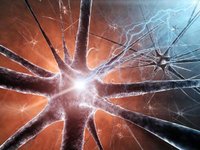
During my quest to seek recognition for this, I thought the defendant hospital, doctor and courts had a lot of nerve to turn around and tell me that I wasn’t dependent (despite having attended a drug rehabilitation program with follow-up consultations lasting more than a year)...
このウエブサイトの左上に私の信条が掲げてあります。裁判を起こして活動をやり続けてきた私はクレジーだと思った人が多くいました。

しかしながら、私たちは二つの選択肢を持っている「何かをすることを選ぶ」か「何もしないことを選ぶ」-多くの人々に希望を持って生きることを与えるのはどちらでしょう?その選択権は私たちの手の中に…
「服用期間中であっても(たとえ薬を飲み続けていたとしても)離脱症状が起きる可能性はある」私と弁護士が裏づけのある論文を必死で探していた時に、アシュトン博士との初めての出会いがありました。
博士には、その後も、要となる情報だけでなく、その他の役に立つ情報もあわせて頂いております。
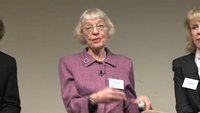
私たちはそれ以降も緊密な連絡を取り続け、手がつけられないほど広がってしまったこの「社会問題」に注意喚起をする努力をしてきました。
アシュトンマニュアルの日本語訳の協力もそのひとつです。
This section shows a variety of other benzodiazepine related videos that may be of interest.

This page has been set up to give readers the opportunity to share their comments.

If you wish to send a message of your own please do so by sending an email through the contact page.
Alternatively, you can use the Benzo Case Japan facebook page.














